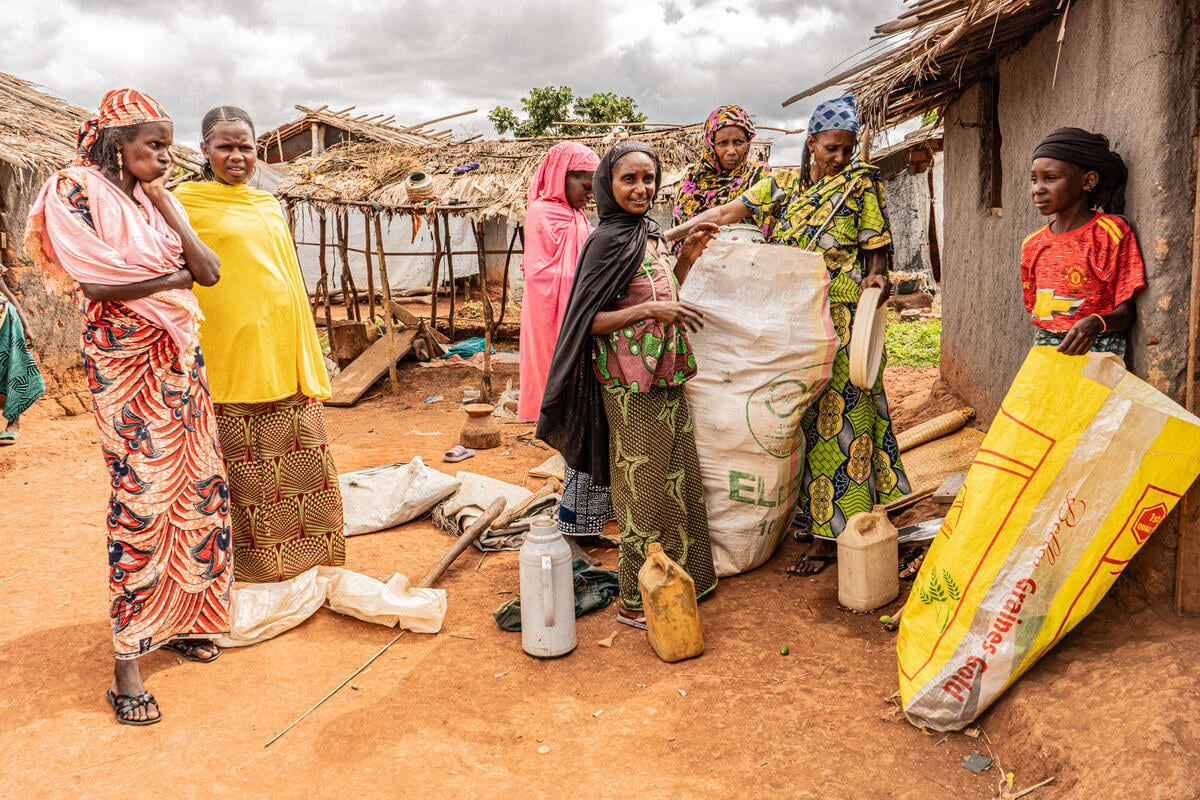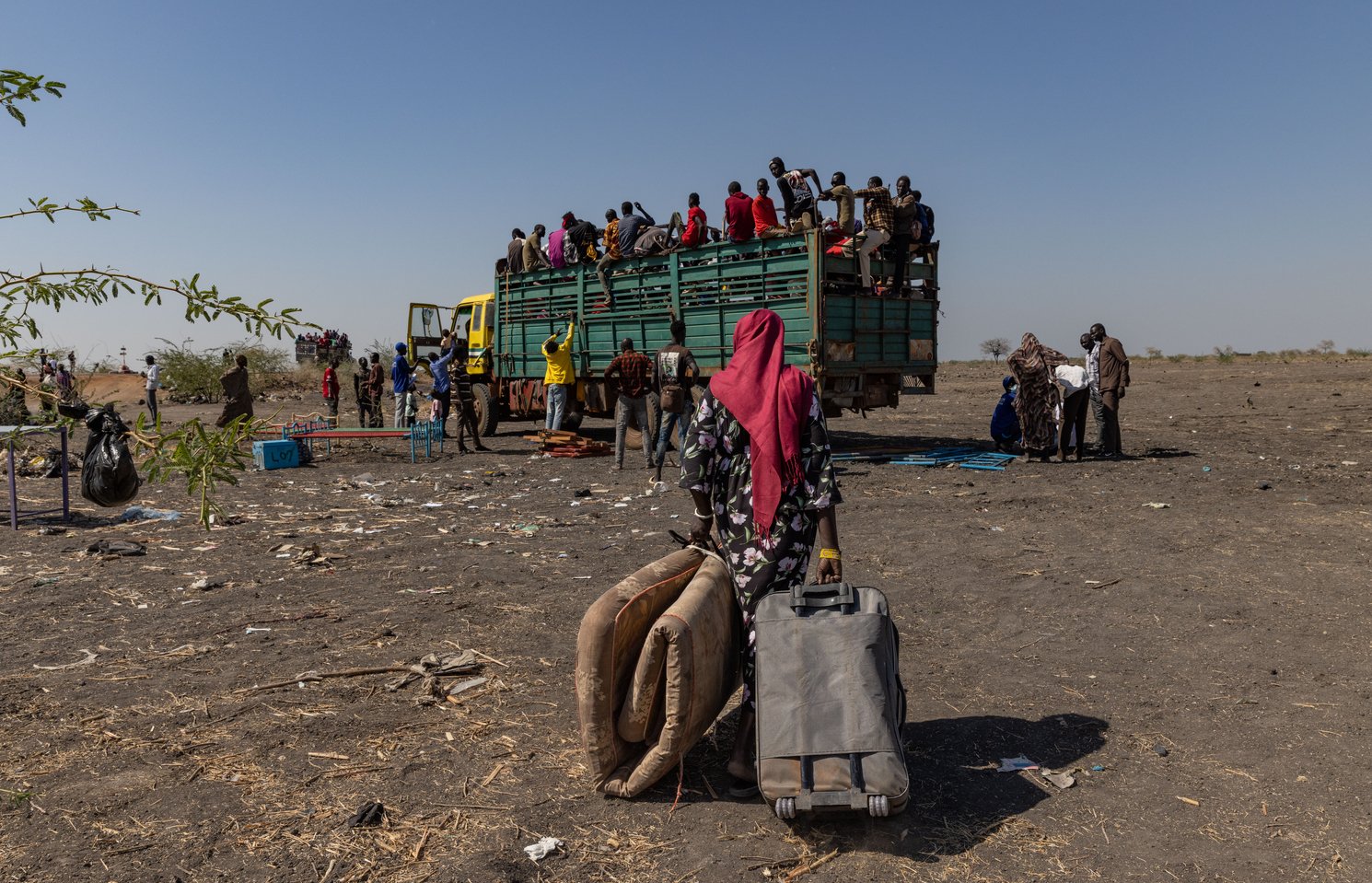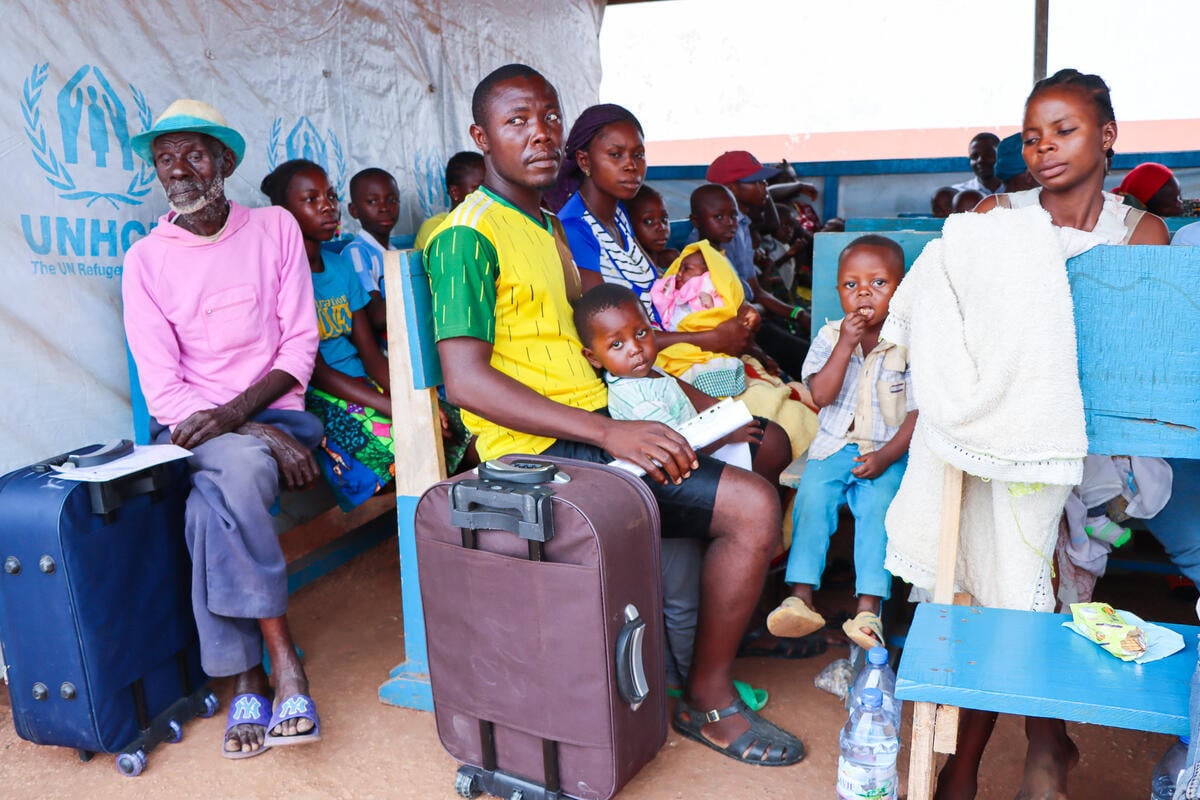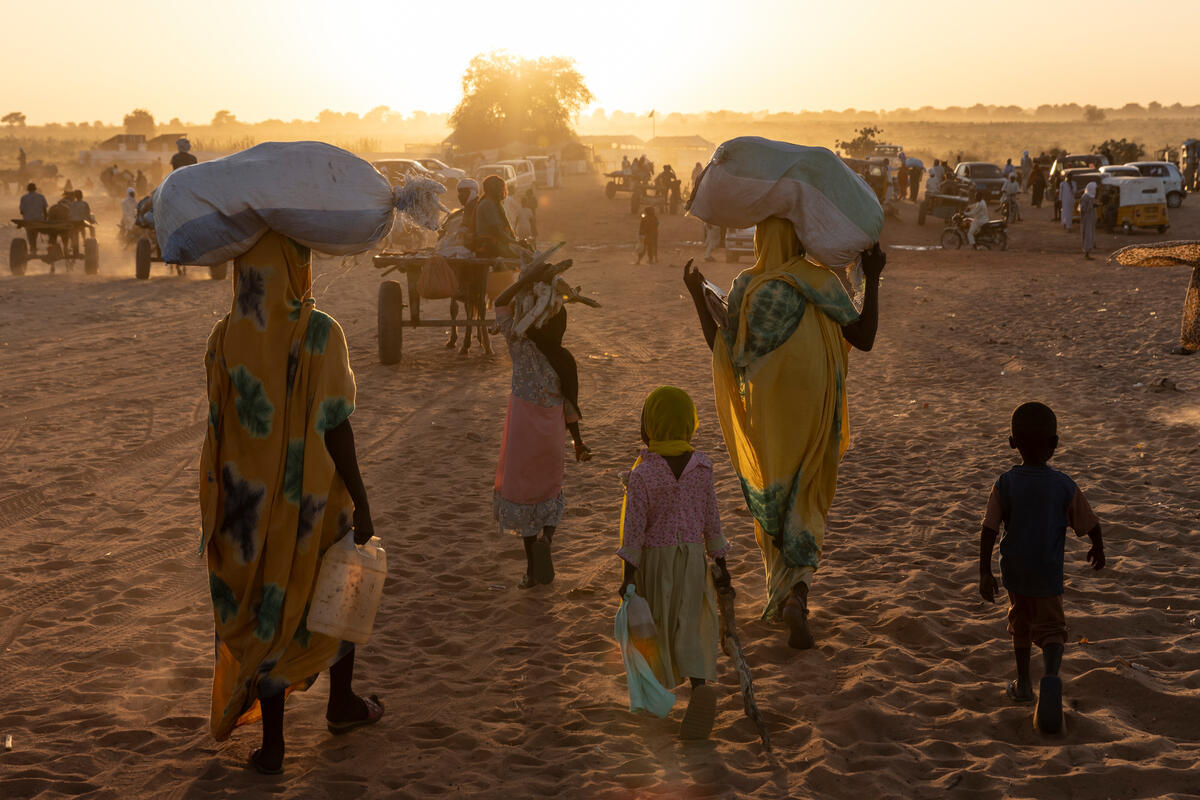Central African Republic: Emergency evacuation from a crucible of violence
Central African Republic: Emergency evacuation from a crucible of violence

BANGUI, Central African Republic, January 24 (UNHCR) - Earlier this week, Amina* thought she was going to die, trapped in a transit centre that was surrounded by armed men who had shot her in the leg and killed her friends.
She was among a group of 58 people who had sought help at the centre in Bossambele, some 170 kilometres northwest of the Central African Republic capital, Bangui, after her home town came under attack by armed groups and thugs. They threw a grenade at a mosque, killing 11 people who had sought shelter there. Then the assailants started looking for other people to kill.
Despite suffering a bullet wound in the leg, Amina eventually sought sanctuary in the transit centre. Only the presence of the French soldiers and the intervention of a local pastor kept the assailants out of the transit centre.
Abdoulaye,* the imam of the mosque, was also hiding in the centre and fearing the worst, despite the presence of the French. "The only way to survive is to leave the north-west," he told UNHCR hours after his ordeal ended. "We were faced with a situation of no choices - only death."
UNHCR and its humanitarian partners shared the deadly concerns of Amina and and Abdoulaye, in a country where violence over the past year has left more than 900,000 internally displaced people. The roots of the inter-communal conflict are complicated and, in recent weeks, the situation has been exacerbated by individual and mob violence as well as banditry.
On Wednesday, fearing an imminent threat to the safety of the internally displaced people in Bossambele, UNHCR and other humanitarian actors organized a voluntary evacuation operation to a safer place for the 58 people in the transit centre. Under French military escort, Amina, Abdoulaye and the others were taken with their luggage by truck to a mosque in Bangui.
Their situation in Bossambele and the operation to evacuate them, highlights some of the difficulties facing those trying to provide protection for groups of displaced. "We are facing a complex protection of civilians challenge that has essentially involved the need for individual protection of groups of displaced, who are under direct threat from armed groups, but also from individual and mob violence," said Tammi Sharpe, UNHCR's deputy representative in Bangui.
In the relative safety of Bangui, a malnourished and dehydrated Amina spoke with difficulty of her ordeal, while stressing that the evacuation had "saved me and my family's life." Sitting in a room normally used for Koran classes and clearly in pain, she explained that she had been wounded during the mosque attack in Bossambele and the bullet was still lodged in her leg. She added that "those butchers" had hunted for her before she reached the safe transit house, accusing her of being a member of the Seleka, a predominantly Muslim former rebel alliance that captured Bangui in March last year.
Like other members of the group, most of whom looked traumatized, she praised the local Christian pastor who had helped protect the displaced group and arrange safe passage out of the town. UNHCR has come across significant numbers of people who have helped friends of different religions.
"I have spent every single one of my 60 years of life in the Central African Republic, and had never ever experienced any problems because of my religion," noted Imam Abdoulaye. He added that after fleeing the mosque in Bossambele, he and a farmer companion had managed to reach the transit centre thanks to "Christian friends," who hid them on their small farms.
But his optimism has taken a severe battering in the past few weeks. Since early December, three of his six children have been killed and Abdoulaye said he believed that they were targeted because he was the imam of the mosque. He had retained hope that a corner would be turned with new political developments, but the deaths of his sons and the attack on Bossambele had dented his morale.
UNHCR and the humanitarian community also remain deeply concerned. "Inter-communal violence has reached dangerous levels and, as this episode reveals, the long-term safety of these people relies on countering impunity for acts of violence and tackling the roots of this growing hatred while finding means to promote peaceful co-existence," said Volker Türk, UNHCR's Geneva-based director of international protection.
Meanwhile, in Bangui, Abdoulaye and the other displaced people, including Amina, were interviewed by UNHCR staff, medically screened and given aid items and food, as well as a place to stay in the mosque complex. But, in a city with more than 450,000 internally displaced, their future looks uncertain.
* Names changed for protection reasons.
By Hugo Reichenberger in Bangui, Central African Republic








